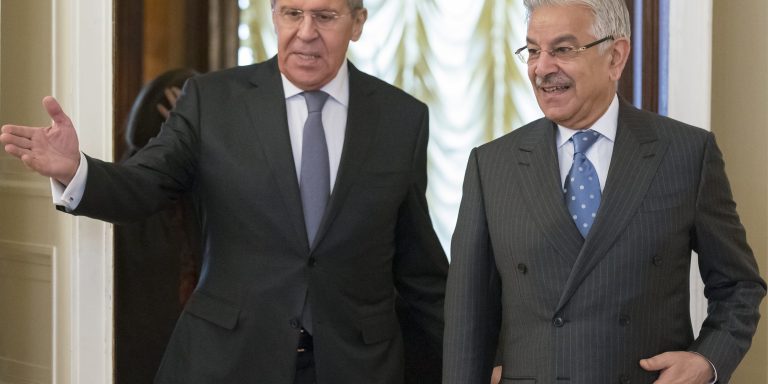INTELBRIEF
August 22, 2018
IntelBrief: Russian Influence on the Rise in Pakistan

- Russia is moving past Cold War alliances and seeking better relations with Pakistan.
- The effort is not new but there is now more traction given the abysmal relations between Islamabad and Washington.
- Three decades ago, Pakistan was ground zero for the U.S. proxy fight against the Soviets in Afghanistan.
- Now the U.S. finds itself bogged down in Afghanistan while Pakistan and Russia move closer together.
.
For decades, U.S. relations with Pakistan were situated in a Cold War context, geared toward countering the then-Soviet Union’s power. U.S. relations with Pakistan have long been problematic, but differences were ignored in favor of counterterrorism cooperation between the two countries. While counterterrorism cooperation is still paramount, over the last few years the U.S. has begun to view its support for Pakistan as one of increasing cost with decreasing benefit.
In an age of rising Russian influence, Russia has positioned itself to take advantage of the deteriorating relations between Islamabad and Washington. Russia has increased its ongoing military cooperation with Pakistan and presented itself as the ‘non-judgmental’ alternative to the U.S. when it comes to Pakistan’s domestic and foreign policy. In July, after Imran Khan began his term as Prime Minister, Russia sent Deputy Defense Minister Alexander Fominto meet with him and Pakistani military leaders to discuss increasing cooperation between the two countries. Those meetings built off a February 2018 announcement that Russia and Pakistan would set up a commission to counter the threat of the so-called Islamic State in the region. The terrorist group’s presence in Afghanistan and in the tribal areas of Pakistan is a real threat to Pakistani security. Russia has also continued its military equipment sales and assistance to Pakistan; significant, but relatively small to previous U.S. military support. This has created some consternation with India, which has long been a major purchaser of Russian (and previously, Soviet) military hardware.
The U.S. shows no sign of backing down with its public criticism of Pakistan; Washington maintains Islamabad plays a duplicitous game with respect to terrorist groups. Early in 2018, President Trump tweeted ‘The United States has foolishly given Pakistan more than 33 billion dollars in aid over the last 15 years, and they have given us nothing but lies & deceit, thinking of our leaders as fools. They give safe haven to the terrorists we hunt in Afghanistan, with little help. No more!’Relations between the two countries have worsened since. The February 2018 decision by the Financial Action Task Force (FATF) to re-list Pakistan as a country not doing enough to counter terrorist financing was met with angry denouncements in Pakistan, which was already frustrated at the cancelation of significant U.S. military funds.
While the use of Twitter to criticize another nation is a new tactic utilized by the current U.S. administration, the tensions between the U.S. and Pakistan are not new, and a rupture in relations was inevitable. Since 2001, the U.S. has been frustrated with Pakistan for its perceived inaction around terrorist activity in the former Federally Administered Tribal Areas (FATA) and for Pakistan’s support for the Taliban and the Haqanni Network in Afghanistan.
The feeling is not just one-sided—Pakistan is pulling away from the U.S. just as much as the U.S is pushing Pakistan away. In an interview with Reuters just after President Trump’s tweet blasting the country, Pakistan’s then-foreign minister, Khawaja Asif, said Pakistan made a mistake aligning itself so closely with the West. He stated that Pakistan wanted ‘to correct the imbalance of our foreign policy over 70 years,’ referring to its reliance on and alliance with the U.S. China has always had significant influence with Pakistan and that trend will continue, as will the trend of increased Russian influence and cooperation. That could be increasingly problematic, as the U.S. will eventually seek a way to extract itself from its 17-year quagmire in Afghanistan and its relationship with Pakistan will need to be better for that to effectively happen. Even so, the time of massive military support to Islamabad from Washington is likely over, at least for the foreseeable future.
.
For tailored research and analysis, please contact: info@thesoufancenter.org
[video width="960" height="540" mp4="https://thesoufancenter.org/wp-content/uploads/2018/08/IB-0822.mp4" poster="https://thesoufancenter.org/wp-content/uploads/2018/08/AP_18051423374179-1-e1534934640997.jpg"][/video]